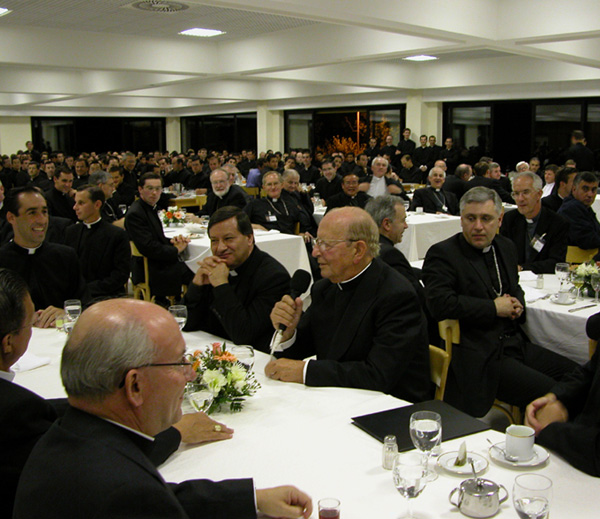The movies considered in the AFI's selection range from The Jazz Singer (1927) to LOR:The Two Towers (2002) - "My Preciousssssssss!"
Ostensibly, the principal criteria for determining each noteworthy phrase were three:
- it has to be a direct quote or slice of dialogue from a movie (song lyrics don't count)
- it must have 'cultural impact'; that is, take on a life of its own, find its way into popular usage
- it must be capable of evoking the fond memory of the film it belongs to, something the Institute calls 'legacy'
In my mind, this third rule would tend to squeeze out of the running or push to a lower rank on the list great one-liners or exchanges that may have been the only redeeming factor of unmemorable films. It seems to mean that being part of a classic movie is not totally irrelevant to being chosen as a 'best quote'.
On the original ballot Casablanca (1942) led the field with seven quotes. The Wizard of Oz (1939) followed with six and the Godfather (1972) trilogy had a total of nine possible candidates. So I guess the stature of the movie does count, which I find neither unusual or unfair. But it still doesn't explain a lot of the omissions or feeble inclusions to the list.
That said, I pick up where I left off in my last post.
4. Some of the chosen lines, often from universally well regarded films, are arguably not the signature quotes of the movie. For example, is the "box of chocolates" (#40) line from Forrest Gump (1994) more engraved in our minds or more often repeated than "Run, Forrest, run!" ? More than my personal, oft' quoted favorite: "Stupid is as stupid does." ?

Is that slightly nauseating reference to Hannibal's nutritional habits (#21) really the best line of Silence of the Lambs (1991)? I still enjoy answering the phone by hissing softly, "Hello, Clarice." and find no better ice breaker for those awkward silences with cannibalistic serial killers than, "Quid pro quo, Dr. Lecter, quid pro quo!!!". Sometimes if you shout it loud enough they get nervous.
The "smell of napalm in the morning" (#12) line is good, but I probably would have chosen, "The horror, the horror!!" from Apocalypse Now (1979). Kurtz's last words. Classic epitaph.
5. That was the right movie/wrong quote category. Next, I suggest that certain quotes be substantially upgraded on the list, principally because they are heavy in the criteria #2 department.

For starters, numbers 68, 69 and 70 from The Shining (1980), Poltergeist (1982) and Marathon Man (1976) respectively should be way higher than the low third of the chart. "I see dead people." (#44) should be within the top 25 at least. Love that line. It captures the purest of human emotions.
Number 76, from Judgment Day (1991), should probably be moved up, too, if for no other reason than it helps us recall the days when we could actually understand what the Governator was saying. Alas, politics makes idiots of us all.
6. Finally, I think that some of the AFI's choices for top 100 are depriving the list of spaces better filled by other occupants. I love Citizen Kane (1941) but see no reason to include "Rosebud" (#17) as a quotable quote.
Likewise, the lines from In the Heat of the Night (1967), On Golden Pond (1981), To Have and Have Not (1944), and Rocky (1976), (#16,88,34,80) are better suited to a list of the 300 most memorable movie quotes.
That's the last on this most transcendental of topics. What can I say? After 1 am my mind starts to wander...
Hasta la vista, baby.



 Bakri actively recruits fighters for terrorist plots wherever the needs of jihad beckon. Figures like John Major, Tony Blair and Pervez Musharraf have fallen under his fatwas (sentences) and he has declared open season on all Murtaddun (Muslim turncoats).
Bakri actively recruits fighters for terrorist plots wherever the needs of jihad beckon. Figures like John Major, Tony Blair and Pervez Musharraf have fallen under his fatwas (sentences) and he has declared open season on all Murtaddun (Muslim turncoats). The Islamic Thinkers bristle at Elliott's article, in the first place, because she was denied direct access to the group and chose to write it anyway, based on the testimony of people close to the organization. The group's
The Islamic Thinkers bristle at Elliott's article, in the first place, because she was denied direct access to the group and chose to write it anyway, based on the testimony of people close to the organization. The group's 

















